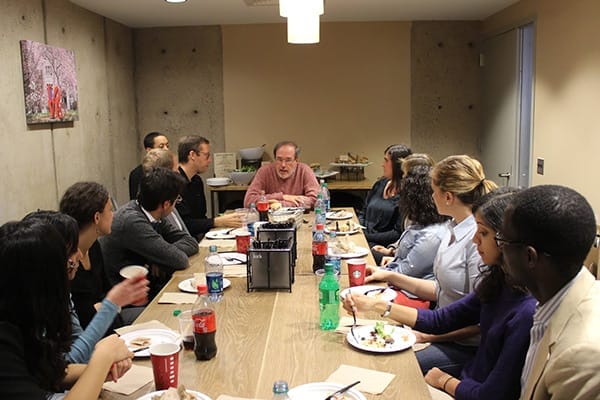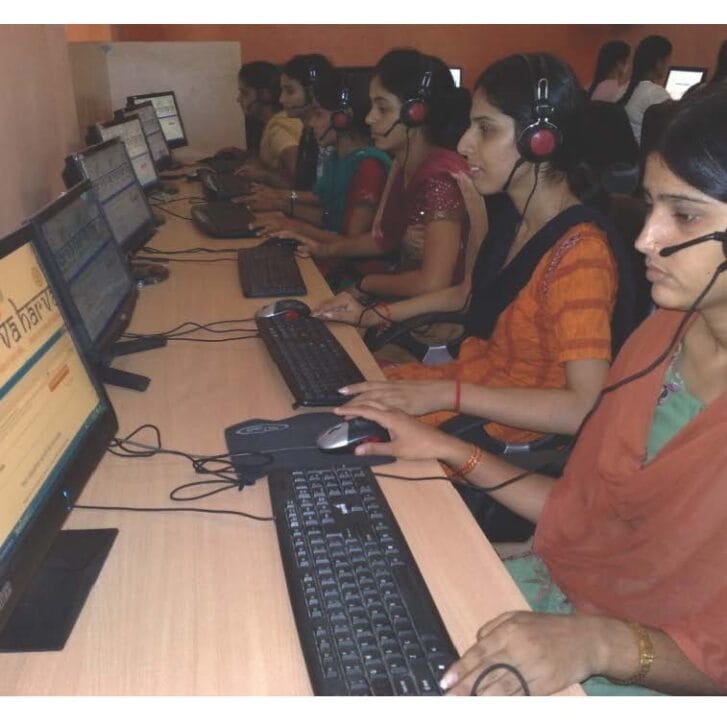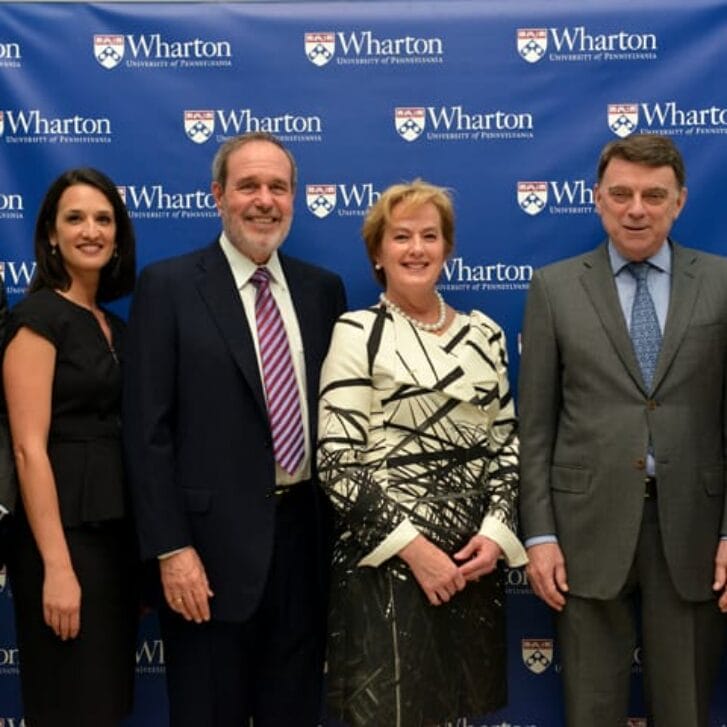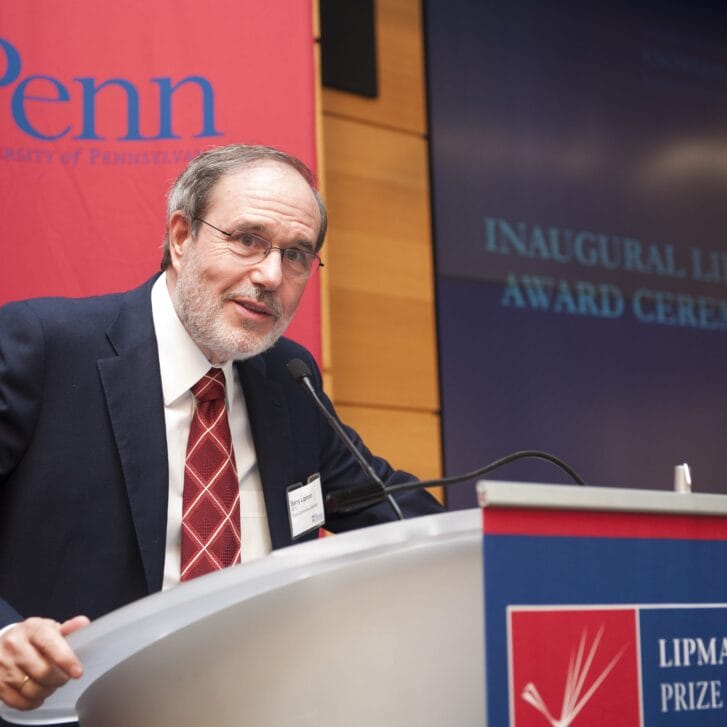The Barry & Marie Lipman Family Prize is many things. One man’s dream realized. A top recognition for social enterprises. A success story at Penn for the past two years. An unparalleled educational opportunity for students. Wharton Magazine has covered the first two years of the Lipman Family Prize (see “The Many Roads to the Lipman Prize” and, most recently, “The Benefit of Being a Social Enterprise Finalist”). Thanks to the generosity and openness of the Lipman Prize team and Barry Lipman, W’70, I was able to sit in on a Nov, 5 brown-bag lunch with the founder himself and the Lipman Fellows. It was in part a launching party, as the Lipman Prize process for the 2013-14 school year is shifting from application review to narrowing the field to the finalists. The luncheon was also a special opportunity for Lipman to get to know the students who have been touched by his generosity and vision.
“One of the great aspects of this is to get to meet 12 students,” he told this year’s cohort of a dozen Lipman Fellows.
Cosponsored by Penn and Wharton, the annual Lipman Family Prize recognizes and amplifies the work of organizations devoted to positive social impact and creating sustainable solutions to significant social and economic challenges. Since the first day of the prize, students have played a pivotal role—reviewing and providing feedback on all applications, traveling to visit actual worksites of the finalist organizations and participating in on-campus learning events.
The benefits to the students of their participation are many, but let’s listen to what the students themselves told Lipman at the lunch:
• First-year Wharton MBA Julie Bruno appreciated how the program is interdisciplinary, structured and showcases the application of Wharton and Penn knowledge for good. She first heard about the Lipman Prize during Welcome Week and knew then she would apply for the opportunity.
• Second-year Jennifer Albinson, echoing the view of others around the table, likes the international aspect of the prize. She also believes it to be “an amazing growth opportunity for leadership development.”
• Another first-year MBA, Jamie Quinn, has been fascinated by her team member’s individual mindsets and approaches to judging and selecting the applicants. (Lipman Fellows come not only from the MBA Program, but from the Fels School of Government, the School of Social Policy and Practice, and the School of Arts and Sciences.)
• And according to first-year Gottfried “Toukam” Ngoufanke, the Lipman Prize is what tipped his decision to enroll in Wharton.
It took Lipman, an attorney, roughly 10 years to figure out how to realize his dream to sponsor a social impact prize. Based on the experience, he has some simple advice for fellow alumni who have their own philanthropic quests:
Call the University.
“You’d be amazed what the school could do for you,” he said.
The idea for the Lipman Family Prize came to Lipman of the middle in the night, and though he was determined to follow his passion, he knew he could not do it alone. Writing a check was easy, he said, but what he needed help with was setting up the prize’s processes and infrastructure. Penn and Wharton have supplied it, as well as the focus on the academic and student benefits.


























